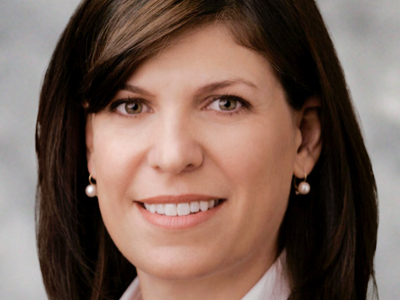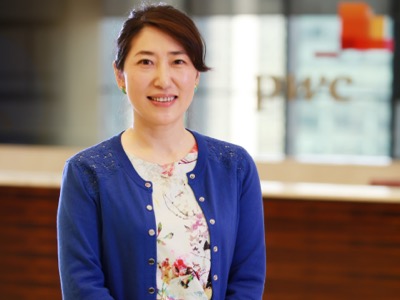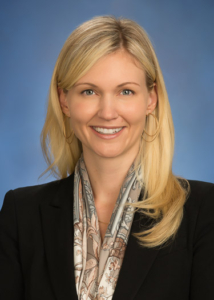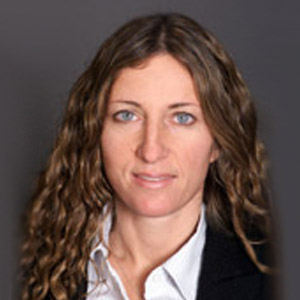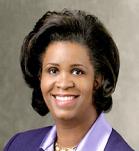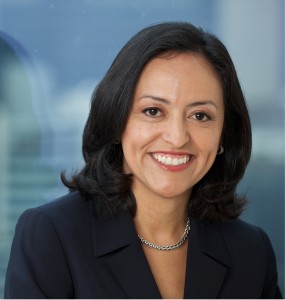 “Wherever you are, get the best experience, keep developing your skills, and keep networking. Whenever you’re asked to do something, make sure you do it well,” says Marcia Diaz. “You’re creating your brand. Whatever happens next, make sure someone will want to pick you to be on their team.”
“Wherever you are, get the best experience, keep developing your skills, and keep networking. Whenever you’re asked to do something, make sure you do it well,” says Marcia Diaz. “You’re creating your brand. Whatever happens next, make sure someone will want to pick you to be on their team.”
Diaz speaks to unexpected opportunities in the right moment, making both your work and your ambitions known, leveraging your position and the value in sometimes asking forgiveness rather than permission.
When One Door Closes, Another Opens (Again!)
What at first appears as a stable and steady thirty-year stint of experience in commercial real estate financial services with PGIM Real Estate was actually a little touch-and-go in moments of Diaz’s journey.
Beginning in retail and then obtaining her MBA at UC Berkeley, Diaz joined the Prudential Realty Group, following the track of getting initial experience at a big institution–to “see as many deals as possible, learn the fundamentals, and get some good grounding”–before planning to go onto work at a real estate developer.
Less than a year after starting as a junior loan officer, the market turned and she found herself working on foreclosures: “Pretty quickly, I was put in a totally different position than I thought I was going to be in, and it was so much more adversarial than the sales side. But I tell people it was like medicine. At the time, I didn’t like it, but it was the best learning experience for a new person in real estate–you learn all the things that can go wrong and you really come to understand the loan documents.”
A few years later, Diaz got into the heart of real estate, moving over to an asset management role and working on mega deals in LA and San Francisco. But as Prudential prepared to go public, the strategy included selling off the major assets she’d been working on.
Just as she had chosen a severance option, she received an invitation to join real estate investment banking in Prudential Securities. For three years, she gained experience in capital markets and M&A, though it felt too far removed from real estate to her. That’s when the head office decided to close down the investment banking group, and she received her second severance package.
As she pondered what was next, she received a second unexpected call, again from within the greater company. This time the offer was to head up the re-opening of the LA real estate office. She would be building and hiring her team and working with multifamily agency products. Since accepting, Diaz has remained on the debt side in originations in the LA office.
“It’s a been a very dynamic company with lots of changes and new opportunities – loan originations, dispositions, asset management, investment banking,” summarizes Diaz. “Every time I got comfortable in one of my roles, some new opportunity and challenge came up where I moved to a different role, and that’s kept me here.”
Real Estate Holds a Story
Diaz enjoys how approachable and tangible real estate is when it comes to the often abstract world of finance. She loves the story that is behind each asset: “Every property is so different and every one has a story. Even after thirty years, my favorite thing is still to go to a new market and hear the story from the developer and the owner and why they’re excited about it.”
“These people are such experts. They tell you why this specific corner is better than that corner and why they’ve laid out the development the way they have.”
Beyond the West Coast, she’s been able to explore London, Mexico and other new markets to feed her passion.
Do Your Best Work, But Also Make it Known
“My parents instilled in me that the only thing you can control is yourself and what you do, so make sure whatever you’re doing, you excel in it,” says Diaz, which she remembers applying even to the most meticulous of tasks in her retail days. “Focus on your performance and whatever you are doing, do your very best work and a lot falls into place.”
Diaz accredits her insistence on showing up with her best effort as to why her name was twice spoken for new opportunities in different parts of the organization. At the same time, Diaz learned that doing your best work is only half the equation. What came less naturally for her was self-promotion, as well as being direct and assertive about what she wanted and where she wanted to go. “During my career, there have been some people who I felt maybe weren’t as qualified as I was, but made it known what they wanted to do–whether a new responsibility or promotion–and I watched it happen for them,” she notes. “I learned you can’t just wait for things to happen. You’ve got to make them happen. Talk to your boss, raise your hand for opportunities, make sure people know what you’re interested in. Don’t let them just assume you’re happy to stay where you are.”
Diaz feels as though her networking was often by default. While that contributed to her opportunity offers, she could have benefited from doing even more: “Start your networking early on, and be proactive, strategic and disciplined about it. This business is so much about contacts and relationships and how you help each other out and refer business.”
Leverage Being Memorable in the Room
Having been in the organization for three decades, from the days when the boys club was shockingly overt at moments, through a time of greater social maturing, Diaz has often been the only woman at the working social event, meeting table or competitive pitch.
But generally recalling the notion of being around the table with twelve men, all dressed similarly and with similar names, it never escaped Diaz that while she was trying to remember “who was who” amongst them, she herself stood out.
So while it can be very intimidating, and Diaz jokes it would help if she was a golfer, she also has chosen to make standing out as a woman work for her, as opposed to seeing it as inhibiting her.
“When I was marketing to borrowers and brokers, I could be competing with five other guys (lenders) who had been in their office that day, but they’re going to remember Marcia. So I tell junior female team members to take advantage of that, but to remember you also must be clear and compelling in your pitch.”
Speak Truthfully and Directly
Diaz feels she has gained respect and trust as someone who will tell the truth, even when it’s difficult or controversial.
“To be a good leader, you need to be able to cheer your team on with all the good stuff. But to make changes and keep progressing, you also need to be willing to address the challenges and difficult matters,” notes Diaz. “I think people appreciate direct and honest feedback and ‘knowing where they stand.’”
Diaz observes that it’s far kinder to be truthful and direct even in critical feedback and to give someone the opportunity to receive and address it, rather than to avoid that conversation until it’s too late.
Grooming and developing talent has become a bigger aspect of her daily life the more senior she has become and is now the most important part of her position. From watching new hires rise to senior positions over decades with her, to understanding the dreams of university student mentees, it’s what she finds most gratifying in the work.
Ask Forgiveness, Not Permission (Sometimes)
As someone who identifies as a “rule follower,” Diaz has had a few successful, dynamic movers and shakers in her journey that passed on an important message: sometimes you just gotta ask for forgiveness, not permission. While taken to the extreme, it may become reckless, she sees the value in being willing to take some informed risk.
“The notion is that when you know things are right, you gotta go with it, especially in the world of transactions,” says Diaz. “That sticks with me, because I think that sometimes you need to have the confidence to recognize you have enough world experience and just go with it.”
As one of her retail bosses early on taught her, ultimately no one else is as close to your business or can tell you what’s best for it.
With so many unexpected twists and turns in her own journey, Diaz also emphasizes to her mentees that there are many things out of your control, so put your energy into doing your best where you are now.
So much of her professional fulfillment comes from in-person social interaction that Diaz awaits the day she can return to the field and hear more real estate stories directly.
She has already combined her love of tennis and travel by attending both Wimbledon and the US Open and would love to travel to France or Australia next to do the same. She grew up on the West Coast as a Pac-12 girl and loves college football season.
By: Aimee Hansen

